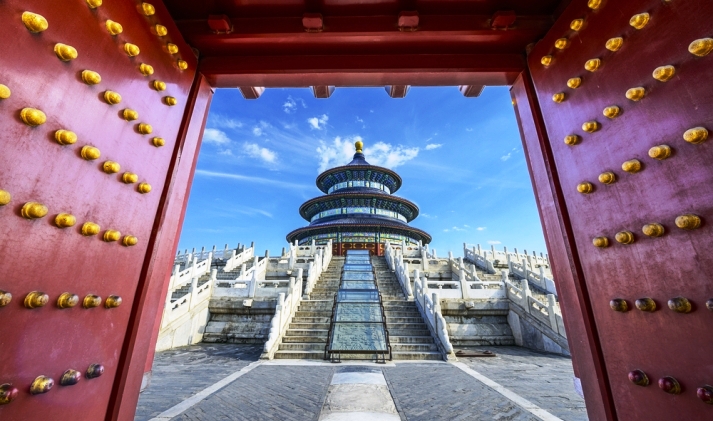


“China’s middle class is increasingly paying for and demanding high-quality Western products,” Evans said. “Tmall Global has established itself as the go-to platform for Chinese consumers who are seeking quality imported products. We can give you access to the world’s second-largest economy through our dominance of China’s e-commerce market.”
Evans was speaking at one of a series of workshops hosted by Alibaba to help foreign businesses reach China’s consumers. The pitch was straightforward: Tmall Global gives international merchants without a physical presence in China a simplified channel for selling online in the PRC. A number of well-known U.S. brands, including Macy’s, GNC and Gerber, already have a presence on Tmall Global.
Alibaba is at the epicenter of China’s booming consumer culture, Evans said, and he cited numbers that point to strong years ahead. Rising incomes within the middle class will play a major role in boosting China’s consumer economy from $4.2 trillion last year to $6.5 trillion by 2020, he noted, all despite the country’s oft-discussed slowing GDP. In the e-commerce sector, cross-border sales are expected to climb from an estimated $97.3 billion in 2015 to $222.3 billion by the end of the decade.
But Tmall Global is far more than just a sales channel for brands, Evans pointed out. By leveraging the entire Alibaba ecosystem, Tmall Global can access a vast repository of consumer data on purchasing preferences and habits that merchants can use to improve marketing strategies in China. And Alibaba’s advertising platform, Alimama, can place products not just in front of Alibaba’s 407 million users—but the ones most coveted.
“We can help you reach as broad or as specific a demographic as you desire,” Evans said.
Also in attendance at the workshop were Alvin Liu, general manager of Tmall Global, and James Zhao, the director of import logistics at Alibaba-affiliated shipping network Cainiao. Liu detailed the advantages of working with Tmall Global.
“We provide the platform, the IT infrastructure, data analysis and marketing tools that enable you to not only sell product, but test new products, engage consumers and build your brand,” Liu said.
Shipping is also part of the Tmall Global solution. Cainiao’s Zhao said the network is aiming to deliver domestic orders within 24 hours and cross-border orders within 72 hours. From international bulk shipping through to fulfillment to the consumer in the last mile, “we provide a one-stop solution,” he said.
Brands already on Tmall Global say it serves as a key part of their China business strategy.
Sylvia Fu, e-commerce director at confectionary company Hershey’s, told attendees that the ability to test new products on the platform provides valuable insights into consumer preferences and “helps us define our next-stage innovations.”
Meanwhile, Pfizer Vice President Donald Kerrigan said even though the company’s products such as Centrum vitamins are sold by many other online merchants, having an official Tmall storefront offers value to consumers.
“They know when they visit our store they are getting quality and will find differentiated products they won’t find anywhere else but on our Tmall Global store,” he said.
Finding quality products is important to consumers, and China’s well-known problemwithcounterfeits is a concern for any brand doing business in the PRC. Evans emphasized that Alibaba is committed to protecting intellectual property rights, pointing to the company’s recent hiring of Matthew Bassiur as head of global IP enforcement. Bassiurpreviously served in senior security and IPR enforcement roles at Pfizer and Apple.
At the workshop, Bassiur said Alibaba is building a global IP enforcement team. The company will be more vocal about its proactive IP enforcement efforts this year, he said, stating that”Alibaba has not been doing itself justice.” Examples mentioned included the company’s programs forspottingand taking downcounterfeit-product listings from its online shopping sites,initiatives to simplify the trademark-registration process, reductions inthe time it takes to remove counterfeit products, closer partnerships with global law enforcement authorities and governments, and the imposition of a variety of penalties against offending merchants, among others.
“This is serious business,” Bassiur said. “The more popular your product becomes, the more there will be counterfeiting across the world just by the nature of the product’s popularity. Winning the war on counterfeiting requires all of us in the industry, from online and offline marketplaces, to brands, manufacturers, trade associations, law enforcement, and governments, to form a united front.”
Hershey’s Fu concluded the presentations with encouragement for small businesses in the room. She noted that many of the most popular brands in China started as e-commerce businesses and did not feel the need to develop a brick-and-mortar presence.
“The beauty of e-commerce is that is breaks down the great walls built by large brands,” she said.”It’s an exciting time for businesses. Make your first step as soon as possible. Tmall is the best platform and partner. Start with pricing and portfolio strategies. Make smart choices and you will have success.”





